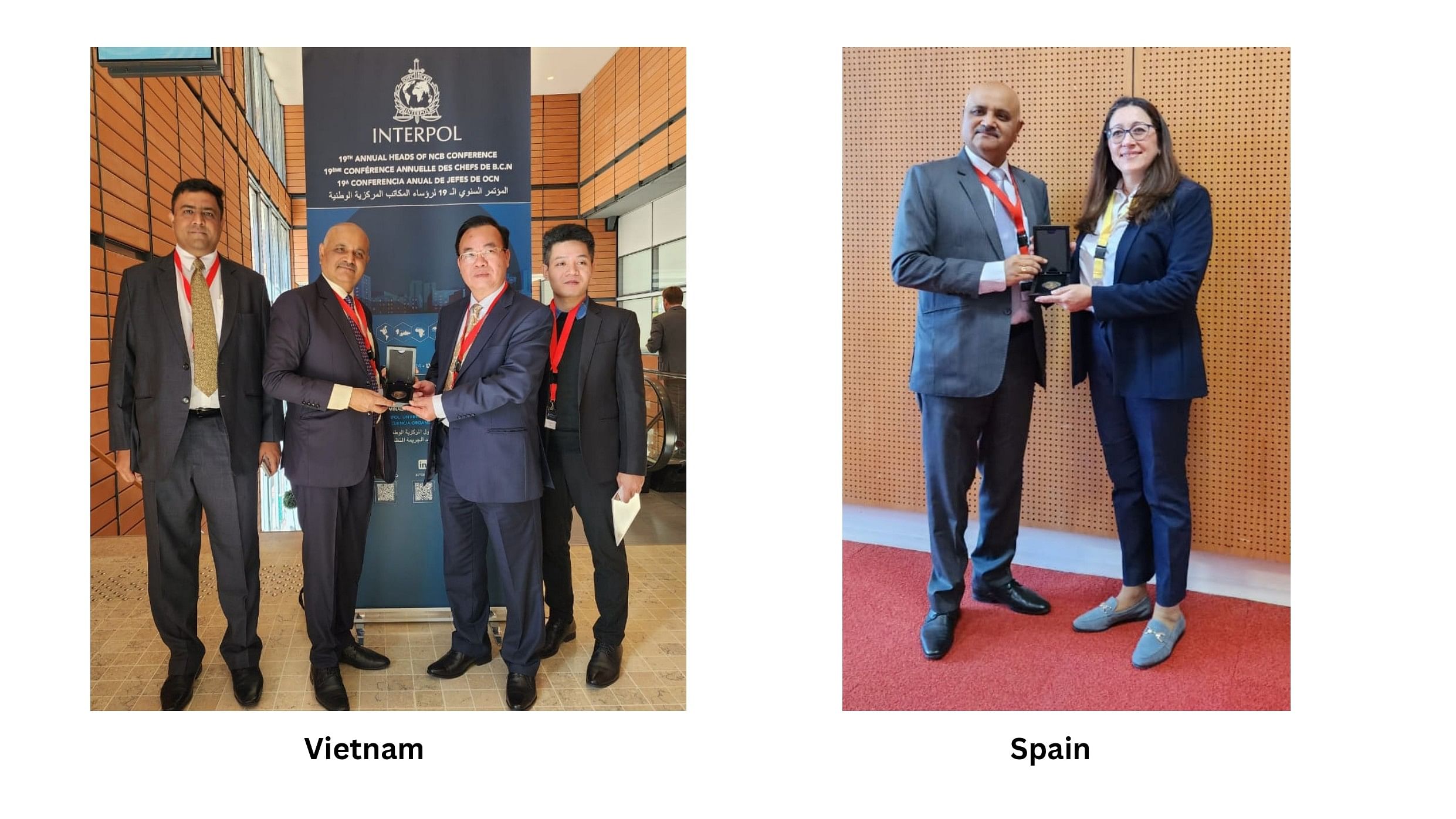
CBI Director Praveen Sood at the 19th Interpol Conference of Heads of National Central Bureaux at France's Lyon, which was attended by the national central bureaux of 136 countries.
Credit: X/@CBIHeadquarters
New Delhi: Underlining that there can be no distinction between 'good terrorism and bad terrorism', India has said online radicalisation continues to pose a significant challenge to global security.
Heading the Indian delegation at the recently-concluded 19th Interpol Conference of Heads of National Central Bureaux at France's Lyon, Central Bureau of Investigation (CBI) Director Praveen Sood highlighted the challenges posed by the nexus between organised crime, terrorism and extremist ideologies.
Sood said online radicalisation poses a significant challenge to global security. He unequivocally condemned all forms of terrorism and conveyed that there can be no distinction between 'good terrorism, bad terrorism'.
The event was attended by the national central bureaux of 136 countries, represented by senior police officials, according to a statement issued by the CBI.
The National Central Bureau (NCB) in each country is the nodal organisation responsible for coordination with Interpol. In India, the CBI is the designated NCB.
The aim of the event was to strengthen the operational cooperation among the NCBs of Interpol to combat transnational crimes.
"During the event, the Indian delegation held discussions with law-enforcement agencies from multiple countries for enhanced coordination on Interpol channels for a concerted action to combat organised crime, terrorism, drug trafficking, money laundering, online radicalisation, cyber-enabled financial crimes and to prevent these crimes on a real-time basis," the statement said.
The three-member Indian delegation, during its discussions with a number of countries including the United States, the United Kingdom and Saudi Arabia, emphasised the need for swift sharing of information through Interpol, expediting mutual legal-assistance referrals and extradition requests.
":Addressing the regional roundtable of the Asia Pacific region, India reiterated to contribute in regional capacity building and sharing India's policing best practices," the agency said.
Sood highlighted India's efforts in tackling crimes and detailed the role of institutions set by the government.
"India supported the adoption of key conclusions of the 19th INTERPOL Heads of NCB Conference, calling for supporting global efforts in the prevention and disruption of terrorism and organised crime in all its forms to create a safer world," the statement said.
India also supported key conclusions, such as strengthening the network of the NCBs to combat the threat of transnational organised crime, enhance global collaborative efforts in the fight against cyber-enabled financial fraud, promote the use of the Interpol network and global police databases, in the fight against child sexual exploitation and to improve data protection measures within Interpol, it said.
"It may be recalled that in 2023, as many as 29 wanted criminals and fugitives were returned to India through close cooperation via INTERPOL channels and 100 Red Notices were published by INTERPOL on the request of Indian law-enforcement agencies," the statement said.